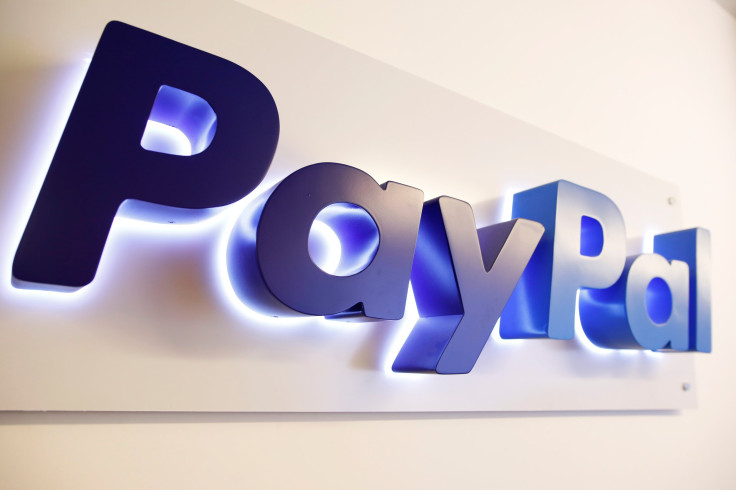Small Business Lending: PayPal, Intuit, Square To Facilitate SBA Paycheck Protection Loans

KEY POINTS
- The Treasury Department gave PayPal and Intuit the go-ahead on Friday and approved Square on Monday
- Wells Fargo already has allocated the $10 billion it was approved to lend through the paycheck protection program
- Major banks often ignore small businesses because of the costs associated with servicing the loans
A number of fintech firms, including PayPal Holdings Inc., Square Inc. and Intuit Inc., have retooled their lending programs and begun facilitating Small Business Administration Paycheck Protection Program loans through major U.S. banks. The companies say they can grant faster approval than banks and eliminate obstacles that have stymied some small businesses.
In addition to PayPal, Square and Intuit, Kabbage, FIS, Funding Circle, Stripe and OnDeck also are expected to participate.
But the move may have come too late. White House economic adviser Larry Kudlow said Tuesday at least $250 billion of the $349 billion available under the program already had been allocated, and there was little hope Congress would approve an infusion of $250 billion more soon. Funds were expected to run out this week.
Wells Fargo met its $10 billion lending limit three days into the program while Chase and Bank of America have restricted applications to existing customers. A federal court ruled Monday banks are allowed to give preferential treatment to existing customers.
Citibank and Capital One are just opening the lending process.
Major banks often ignore the small businesses with which PayPal, Square and Intuit often deal, citing costs for underwriting loans. Complaints surfaced soon after banks started accepting applications for the SBA loans that businesses without banking relationships were being cut out.
Jo Ann Barefoot, CEO of the Alliance for Innovative Regulation, told Bloomberg as many as 70% of PayPal’s small business loans – usually totaling less than $25,000 – go to companies in counties that have lost 10 or more banks since 2008.
Jackie Reses, Square Capital lead, said more than half of its borrowers are women and more than a third are minorities.
PayPal (PYPL) was working with Salt Lake City bank WebBank to facilitate the loans while Intuit (INTU) was working through its QuickBooks Capital platform and Square (SQ) was working with Celtic Bank in Salt Lake City. All three companies were expected to focus initially on existing customers.
PayPal and Intuit were approved as lenders Friday while Square received its approval Monday.
“The first loans have been applied for and issued. We expect more loans to be issued in the coming days,” PayPal CEO Dan Schulman said on LinkedIn, adding, “Small businesses have been hit especially hard by the coronavirus crisis. There is an urgent need to help every qualified business access the funding needed to ensure that as many workers as possible keep their benefits and paychecks. This is a race to save jobs in the present and for the future.”
“We are focused on getting help to customers as quickly as possible as they navigate this unprecedented and challenging time,” Alex Chriss, executive vice president and general manager of Intuit’s QuickBooks, said in a press release. “Our customers are resilient but they are suffering.”
Luyke Voiles, vice president and business leader for QuickBooks Capital, said the company is focused on getting money into its customers’ hands as quickly as possible.
“Validation of payroll information is necessary to complete the PPP application. For QuickBooks payroll customers, the customers’ data is already in the QuickBooks system,” he said. “As a result, we are well positioned to help expedite the loan application process for this group. One in 12 American workers are paid through our payroll systems, which makes this an impactful place to start.”
“The PPP program has manual checks and processes that require time, and we’re doing the best we can despite having tech that can operate at scale and efficiency,” Brian Peters, executive director of Financial Innovation Now, an industry group that counts PayPal and Square as members, told Bloomberg. Fintechs have had to “retool their lending programs to make PPP work.”
© Copyright IBTimes 2024. All rights reserved.






















